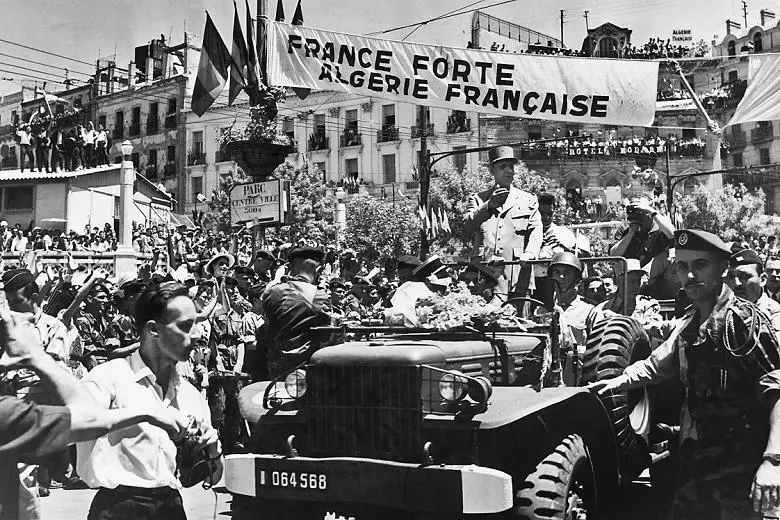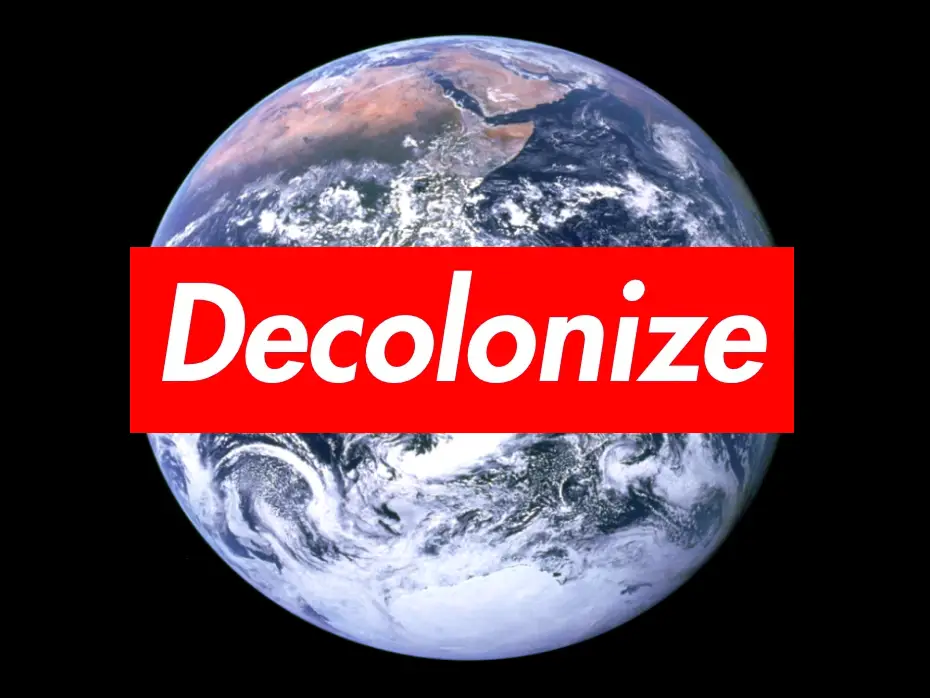Decolonizing the Classroom
What’s that saying about something happening to people who don’t study the past?
By Phillip Bugajski, Loyola University Chicago
I didn’t learn about the Algerian War of Independence until I was in college.
Specifically, I didn’t learn about the war until I was a sophomore, and I took a history class examining the actions and effects of the colonization of several nations, focusing on India and countries in Africa in particular. Oddly enough, though I had previously taken a class titled “Western Civilization,” no mention of the conflict ever came up. You’d think that a war involving France’s most important colony, the killing of thousands of French and Algerian citizens, and a lasting effect on the governing structures in the rest of North Africa would be significant enough to find its way into more global history curricula.

My experience may not be that shocking, but, from what I have seen among my peers, my education seems to be the norm. Most people don’t know all that much about the lasting effects of European colonization, besides, of course, that a small insurrection of colonists established an unofficial state in North America, which became the United States. The lack of knowledge doesn’t end at France in Algeria either. I remember spending a few days in my world history class in high school talking about some scattered decolonization movements, all of which happened around a similar time.
Yet, much of this historical narrative is misplaced, pushed aside to make room for other aspects of history, such as a larger focus on the World Wars, or the Greek city-states and Roman laws of antiquity. All of these subjects, no doubt, are extremely important, and all of them have their place in the classroom. However, subjects like colonization and its consequential decolonizing forces are lost in the typical American classroom.
The Case for Decolonization
In arguing for an increased inclusion of colonization in curriculums nationwide, it is, above all, necessary to explain how colonization and subsequent decolonization are globally important. The movements of decolonization, from Fanon to Gandhi to Louverture, may have taken place in the twentieth century, but many of their philosophies still affect the world of international relations today.
Take, for instance, Mahatma Gandhi’s philosophy of nonviolent resistance. Examining it closely, it is extremely similar to Martin Luther King Jr.’s principles of nonviolent resistance; MLK even says that Gandhi’s philosophy was one of his primary inspirations. Even if students don’t know so much about Gandhi and India’s movement for independence, then, Gandhi’s political insights have a much more profound effect than it may originally seem: They have traveled the globe, even taking root in one of the most fundamental struggles for equal rights in the U.S.
On a global scale, many people still fight for their own rights in their own countries, and the same arguments for representation, independence and equal treatment come from the decolonization movements in the 1900s that sought to establish representative governments for and by the people.
In addition to resolving the localized struggles resulting from colonization, supranational organizations often also resolve disputes regarding the transition from former colony to independent nation. The United Nations, for example, used the now-defunct Trusteeship Council to govern territories like Palestine that were, at the time, League of Nations mandates.
Additionally, the United Nations has overseen the decolonization of over eighty former colonies through special committees and programs. The involvement of one of the largest governing organizations on the planet proves just how important the forces of decolonization were for advancing human rights, representation, trade and commerce, and a number of other areas.
Further, the designation of some ex-colonies still classified by the United Nations as Non-Self-governing Territories, including Puerto Rico, shows both the degree to which former imperialism has been halted, but also the extent to which the effects of colonization continue on, even in the present day.

If you prefer to look at a more recent example, take, for instance, one of the most controversial issues, if not the issue in the Middle East today. The debate over the territories between Israel and Palestine, specifically along the Gaza Strip and West Bank, was sparked by a mandate made by Western European powers involved in the League of Nations that sought to establish a homeland for Jewish peoples in the territory of Palestine. While a mandate is different than the creation of a colony, the question of whom the land belongs to is still fundamentally the same. The struggle of Palestinians and Israelis alike seeking representation in their own local governments is caused by the influence of external nations that control the governments of other peoples.
Regardless of which side, if any, you agree with, recognizing that forces of imperialism in global history have shaped today’s current struggles is crucial in beginning to solve these problems. Additionally, nations seeking to remove past colonial influences and reclaim their own governance are continually influenced by prior forces of decolonization, some of which remain problematic today.
What Can You Do?
Unfortunately, there is not a lot that can be done immediately to rectify the state of colonial education in the U.S., if only because the system itself is difficult to change in any form. So, the responsibility falls upon the individual to understand more about their own history and the history of others. Here are a few ways to do that.
Never stop questioning. If colonization is mentioned in a class, it might be a good time to speak up and ask more about certain aspects of colonialism, and how it affected both the colonizers and the colonized peoples. Look into different responses and philosophies as a historical study, and see if any of the situations or diplomatic decisions are applicable in a present day situation.
Challenge yourself. I never expected that I would take a class so focused on the deep historical impact that colonialism had both economically and socially. Yet, I feel as though I learned some of the most important lessons about history from reading books about Britain and India, or articles about Belgium and their colony in the Congo. For example, in addition to being monumentally interesting, the shipping of raw materials out of their countries has lasting effects in some of the nations most wracked by poverty
Study abroad. This is one of the best things that you can do during college. It expands your horizons, and may even teach you another language or culture. Though most students think of studying mostly in Europe, try looking around at other programs. Loyola recently offered a fantastic study abroad program in Tunisia, and has campuses in Beijing and Vietnam.
In addition to broadening your academic understanding of the world, seeing firsthand the other side of the story that is so often presented changes you as a person. Seeing the people who were historically colonized and only recently won their full rights is humbling, and daily life tells more about their history than most textbooks.









